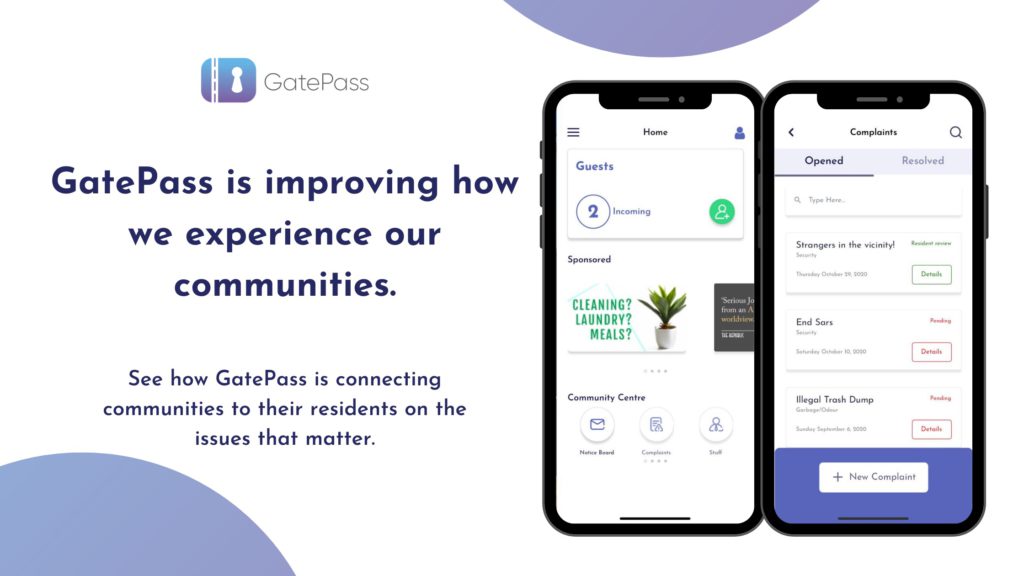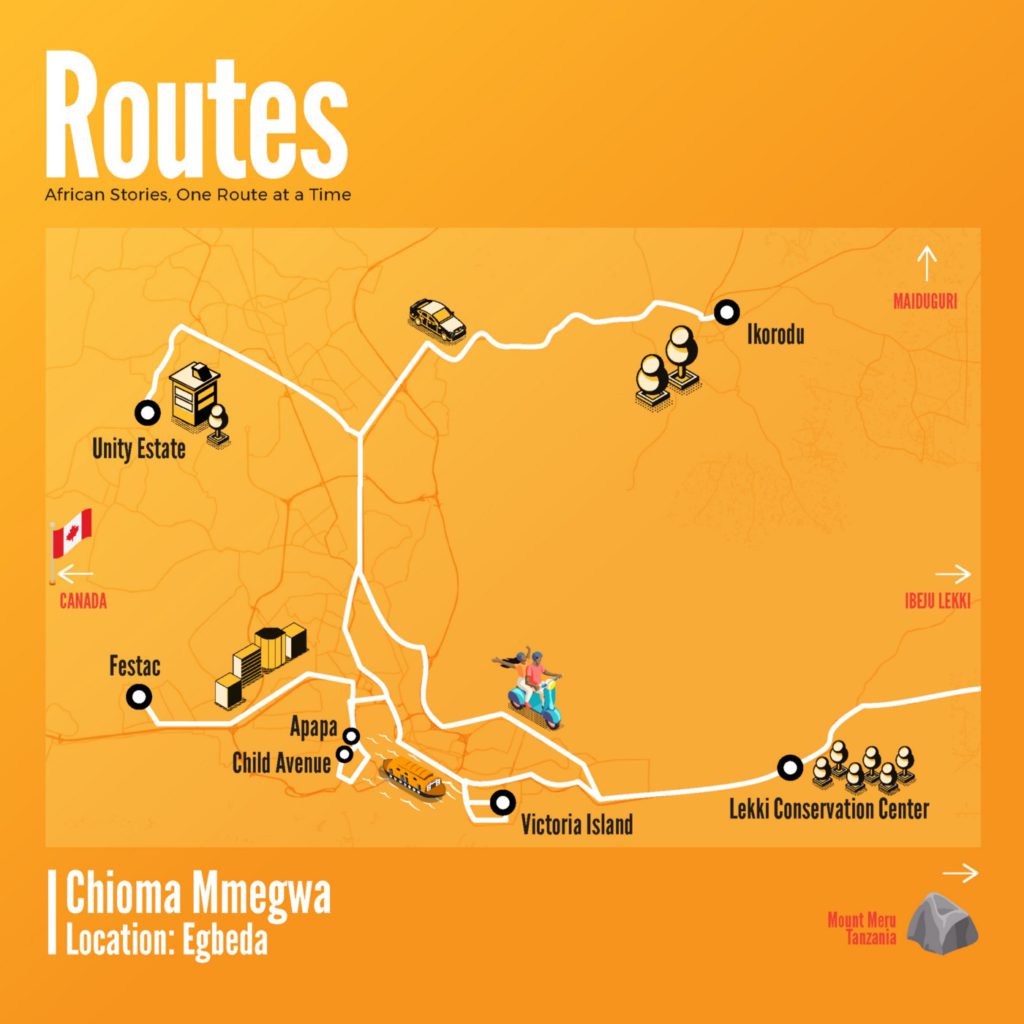
The insurgency changed the way people lived completely. When I say completely, I mean, people could no longer go to work, school or even the market. — Chioma Mmegwa, Egbeda
Our questions are italicized.
What’s your favourite memory about the street you grew up on?
I was born and brought up in Maiduguri, Borno State. Back then, I lived on a very quiet street that had so many trees. There were trees in all the compounds on my street. My house was a 4-bedroom flat; I remember the house had 2 boys quarters that had 2 bedrooms each, this made the house quite big and it had a really large compound. In the compound, we had a little farm where we grew tomatoes, groundnut, corn, and some other things. With a lot of trees and space in the compound, we as children had a lot of room to play. Other kids from the neighbourhood always came to our compound to play and we would usually climb the trees — that is what I loved the most. The trees, the space, the quiet, everyone minded their business and the people were peaceful.
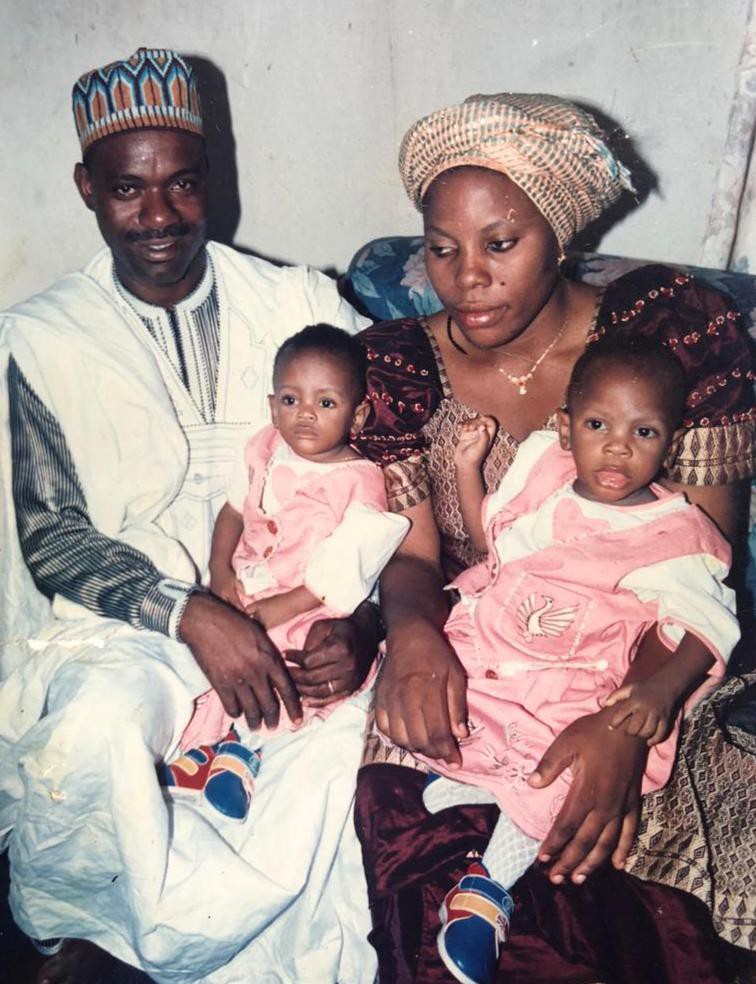
“I, my parents and my twin” Maiduguri, Borno State. Photo Courtesy of Chioma Mmegwa.
My street was also behind a place called Lagos House; a lot of government officials lived there. The then-governor, Ali Modu Sheriff’s house was close by too, making the area quite secure. I came to Lagos in 2011 and the first street I lived on was somewhere in Unity Estate, Egbeda.
What was a notable difference between your where you lived in Lagos and where you had lived in Borno?
The trees. There were no trees around my street in Lagos and the compound around my house was not as spacious. In Lagos, my house was close to the road so it was not as quiet either.
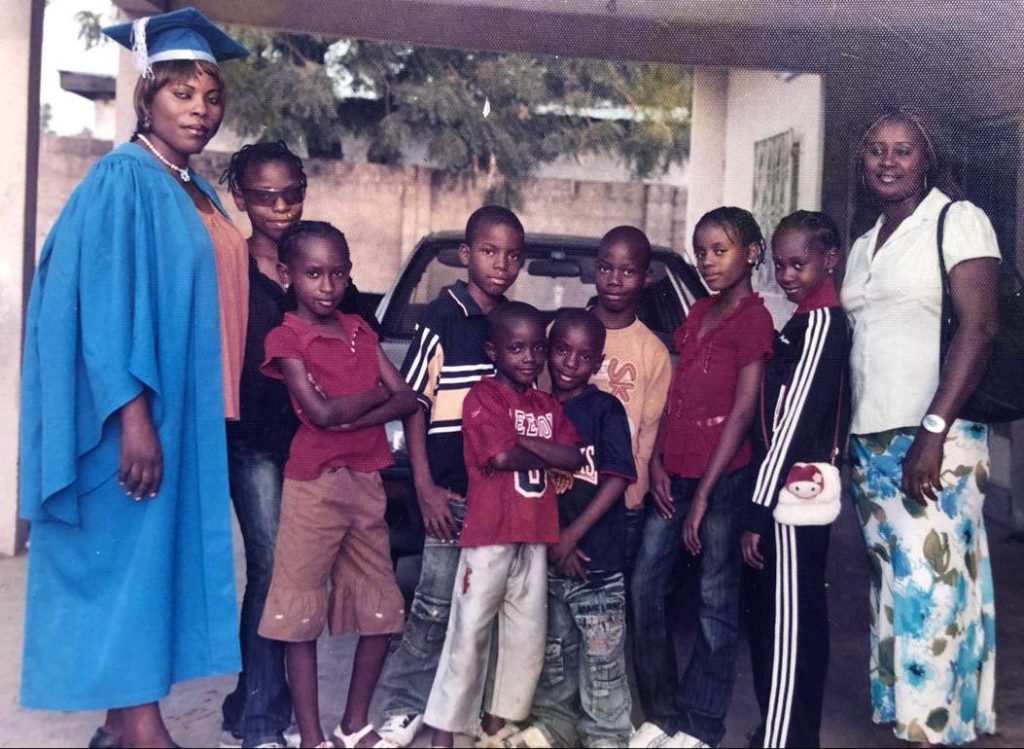
“With some family and friends in my compound in Maiduguri” Photo Courtesy of Chioma Mmegwa.‘
When was the last time you visited Maiduguri?
I have not visited Maiduguri since I came to Lagos in 2011. I left Maiduguri because of the Boko Haram insurgency. It was really intense at that time, so a lot of us had to move to other states. Although, I know people who went back, some of them school over there.
What’s something people may not know about how the insurgency changed how people lived in Borno?
The insurgency changed the way people lived completely. When I say completely, I mean, people could no longer go to work, school or even the market. There was a time a market was attacked. They came into the market and started shooting people — so many people died. People may not know this too; they targeted communities were Igbo people lived. We literally could not leave our house. Quite similar to the recent lockdown in Lagos but worse, because there were guys shooting people who left their houses.
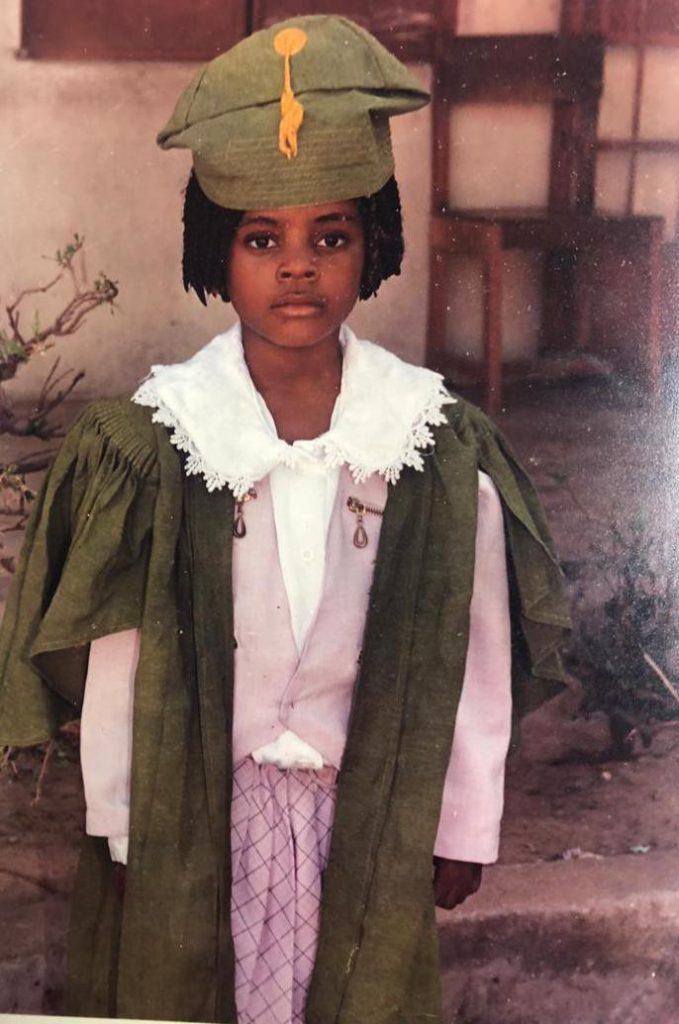
Nursery school graduation, Maiduguri, Borno State. Photo Courtesy of Chioma Mmegwa.
What’s something people may not know about moving to Lagos?
I had visited Lagos once before I moved in 2011. Moving to Lagos didn’t really feel different for me. Lagos is a city for everyone, you meet with people from different parts of the country and even the world here. So, I fit in well. I think the only thing that stood out for me would be the vulgar terms used among people here. People are so quick to insult each other and it’s so normal. I never knew people could call each other “Bitch” and be fine with it. People screaming “Your Father” like it’s nothing. Back in the North, I’d say people are more well-behaved.
What’s the longest you’ve had to travel for something?
The longest I’ve had to travel within Lagos would be from Egbeda to Ibeju-Lekki. At the time, I was a marketer for a real estate company. I had to take some clients to go see some lands there. It took me about 3 hours to get there and I spent over 3 hours coming back. I had never been so exhausted; the good thing is the clients purchased the lands I showed them.
Where was the most expensive piece of land you recently sold?
For the short period I worked in real estate, the most expensive land I sold was in Ibeju-Lekki, the land cost ₦1.5 million.
And the cheapest?
The cheapest land I sold was also in Ibeju-lekki. The company I worked for had a promo going on, so the price was slashed. The land was originally worth ₦1.2 million but I sold it for ₦450,000.
What’s your daily commute?
Because of the coronavirus I currently work from home. But before the pandemic, I worked in Victoria Island and lived in Apapa. I usually go from Apapa to CMS using a ferry which cost ₦150. Then, from CMS I take a bus to Victoria Island, the bus costs ₦150, too.
What’s the most noticeable change you’ve experienced on your street/in your area since the pandemic started?
Hmm! I think the only thing that changed is the security. You know because of the 100 million boys who we heard had been looting neighbourhoods. They never got to my street, but everyone was on high alert. That motivated people to stay indoors during the lockdown. At night, you’d see vigilantes outside burning tyres. The situation made people cautious but after a while, everything went back to normal. You’ll find people walking outside, the shops and saloons all open. There’s a place where bike men park on my street — they have been there as if nothing happened, the only thing is they wear face masks. The major difference is that schools are closed, every other person is living like nothing happened.
Car, Okada, Bus — what’s the best mode of getting around Lagos?
If I were to pick one, out of these three options, I’ll go with Okada. Because it is faster, plus there is a lot of air when on an Okada. Then there’s the part where you zoom pass cars stuck in traffic. What an amazing feeling. Although, it is quite dangerous. I used to have a “trusted” bike guy before the ban. Left to me, using a ferry is my preferred mode of transportation. If only it could take me everywhere, I’d be extremely happy. Using a ferry is quite fast — there’s no traffic, no congestion and it’s cheap.
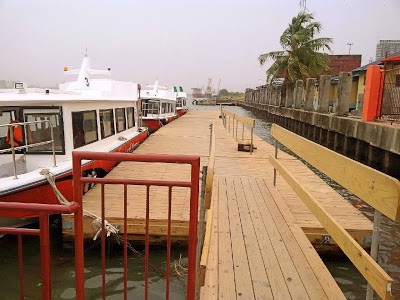
Seacoach ferry jetty in CMS, Lagos. Photo Courtesy of Seacoach.
Does gender shape how you travel in any way?
Well, I’m not a very fearful person so I would love to say no, but as much as I’m not a fearful person, there are bad people out there. So, I’d say I’m usually cautious. I go with my guts. Sometimes I want to enter a bus, and something tells me “no, take the next one” I always listen. I judge situations from what I can see too. For instance, I want to get into a bus, and I see only men inside, I’m definitely not going in. Time and location are also factors. I’d rather go to an actual bus station since it’s a bus station I believe they know themselves there. You also find people who enter random cars on the roadside. You know those private cars that just stop and pick people up on the road. That can’t be me, I highly recommend you don’t enter cars like that. I think my methods work for men too. Generally, everyone should be cautious.
What’s an obvious part of [Lagos] that you’ve never visited?
An obvious part of Lagos I have never visited would be Festac. I may have gone passed it, but I have never actually visited.
What’s one place [in Lagos] everyone should visit before they turn 20?
One place I think everyone should visit would be the Lekki Conservation Centre. I enjoyed my visit there; I think the place is amazing and it’s not something you see every day. It’s different. I think everyone should visit there at least once in their lifetime.
When was the last time you visited a new street in Lagos?
The last time I visited a new street was about 4 months ago. It was Child Avenue in Apapa — I have been to Apapa several times, but that was my first time visiting that street.
What’s something you know about Lagos that not too many people know?
For this, I’d say using the waterways in Lagos. Not too many people know that from Apapa you can get a ferry to various locations within Lagos. From Apapa there’s a ferry that can take you to CMS, there’s one that can take you to Ikorodu; there’s one that can take you to Badagry; there’s one that can take you to Tarkwa Bay and I’m sure they have ferries to other locations too. That’s something I think most people do not know about Lagos.
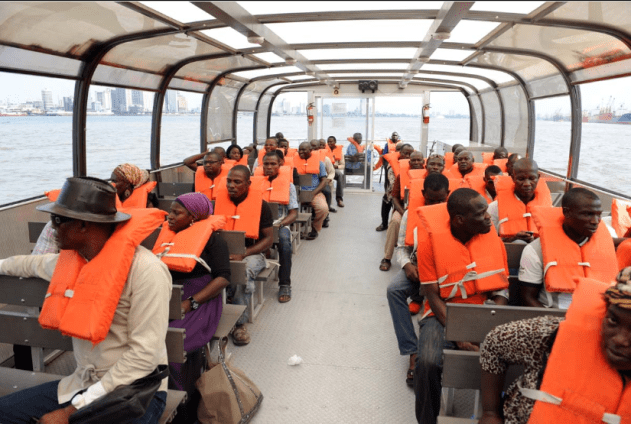
Commuters on a ferry. Photo Courtesy of Inside Business.
What’s the most expensive waterway route you know?
I think it depends on the type of ferry being used, that determines the price. From CMS to Tarkwa Bay, you can get a ferry for around ₦200 to ₦500. But if you go from Victoria Island it costs about ₦1,500 or so. Then there are private boats you can take that range from ₦50,000 to ₦100,000, last I recall. Ikorodu to CMS cost around ₦600, that should be the most expensive route for the normal ferries that convey people on a daily.
And the cheapest?
From Apapa to CMS, it cost ₦150 using a smaller ferry which carries few people. There is this really big ferry that looks like a BRT. That one costs ₦100 for the same route.
What’s a [Lagos] route you know by heart?
I know a couple of routes by heart, but I’d say from Egbeda to Apapa. I live at Egbeda, but I stay at Apapa sometimes.
What’s the quickest way to get from Egbeda to Apapa?
From Egbeda to Apapa I love using bikes (Okada) — even after the ban I still found a way to use bikes because using a car is just stressful. In other not to implicate myself, let’s just say I found a bike going my way. So how I go is; from Egbeda to the express that takes you to Ikeja, from Ikeja to Maryland, from Maryland I get on Ikorodu Road, then go straight down to Ojuelegba Bridge, I climb the bridge then I get to the National Stadium in Surulere, I climb the bridge there too, I pass Iponri and Costain, then I get on Eko Bridge which links to Ijora, from there I’m already at Apapa, I then go through Area B and I’m at my destination. This usually cost me around ₦3,500 to ₦4,000.
What’s one thing you always look forward to seeing on your street?
One thing I look forward to seeing on my street is the men who sell sugarcane around the corner. Back in Borno, there used to be a lot of sugarcane plantations with no one stopping you from cutting them off. In Lagos, sugarcane is rare, so I usually look forward to seeing the men who sell it on my street, even though they are not always there.
What’s the most you’ve had to pay to get from one place to another in Lagos?
I’ll break this down by the different mediums of transport I use. The highest I have had to pay for a cab in Lagos is ₦8,000, from Ajah to Egbeda. Using a bus, one time I spent up to ₦3,000 on one trip. Lastly, using Okada, from Egbeda to Apapa I have spent about ₦4,000.
The last location you texted or tweeted is where you’ll live next, it’s:
Canada oh! Yes! Canada.
You’re going to a place you’ve always wanted to visit and can only take one thing. Where are you going and what are you taking?
Mount Meru in Tanzania and the one thing I’d take would be my bible. My reason would be because it’s a mountain and it has a forest and I just like how the name sounds.
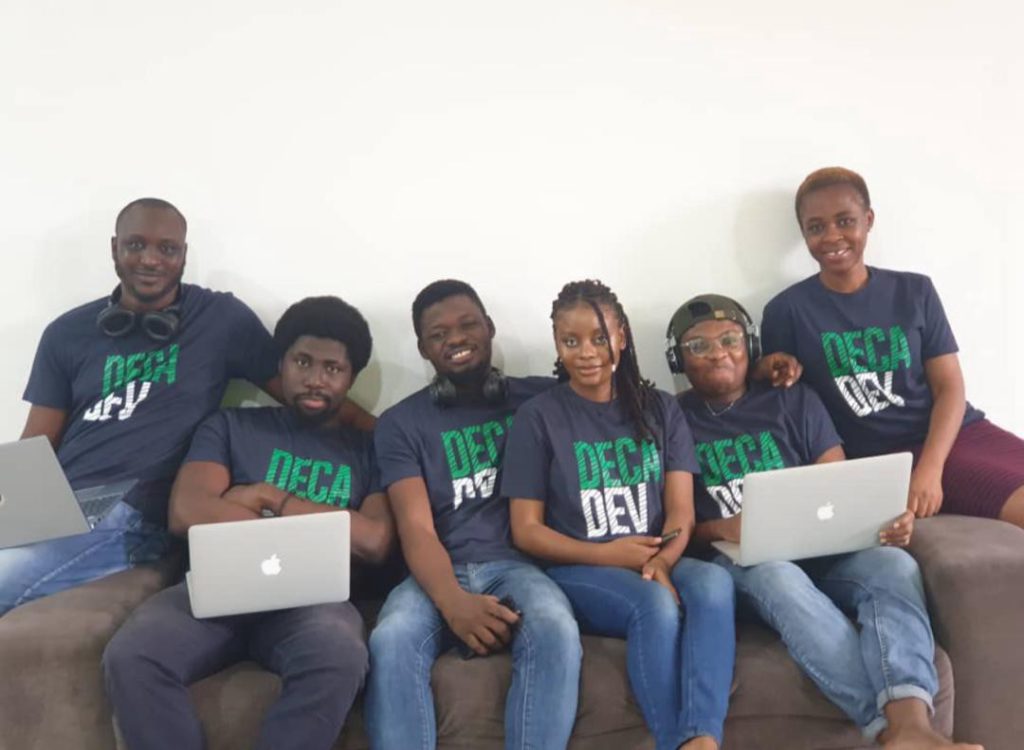
Chioma, third from right, with fellow trainees at Decagon, Lagos. Photo Courtesy of Chioma Mmegwa.
Chioma Mmegwa is a web developer. Born in Maiduguri, Borno State, she moved to Lagos in 2011 and currently lives in Egbeda.
About Routes
Routes by GatePass is mapping African stories one route at a time. This project sits at the intersection of life stories and mobility in African contexts. Through Routes, we explore how African lives are shaped by mobility, migration, journeys and modes of transport; and how places take on the stories of the people who have visited or passed through them.
Do you or someone you know have an interesting mobility story? Do you have a hack for moving around your city, or know something about your city’s history that not too many people know? Tell your story. We’re open to submissions and looking forward to reading!
Email: routes[at]gatepass[dot]io
Editorial Team
Editor / Publisher — Wale Lawal
Sub-Editor — Muyideen Dosumu
Interviewer — Nosa Osunde
Illustrator — Samson Msheila

